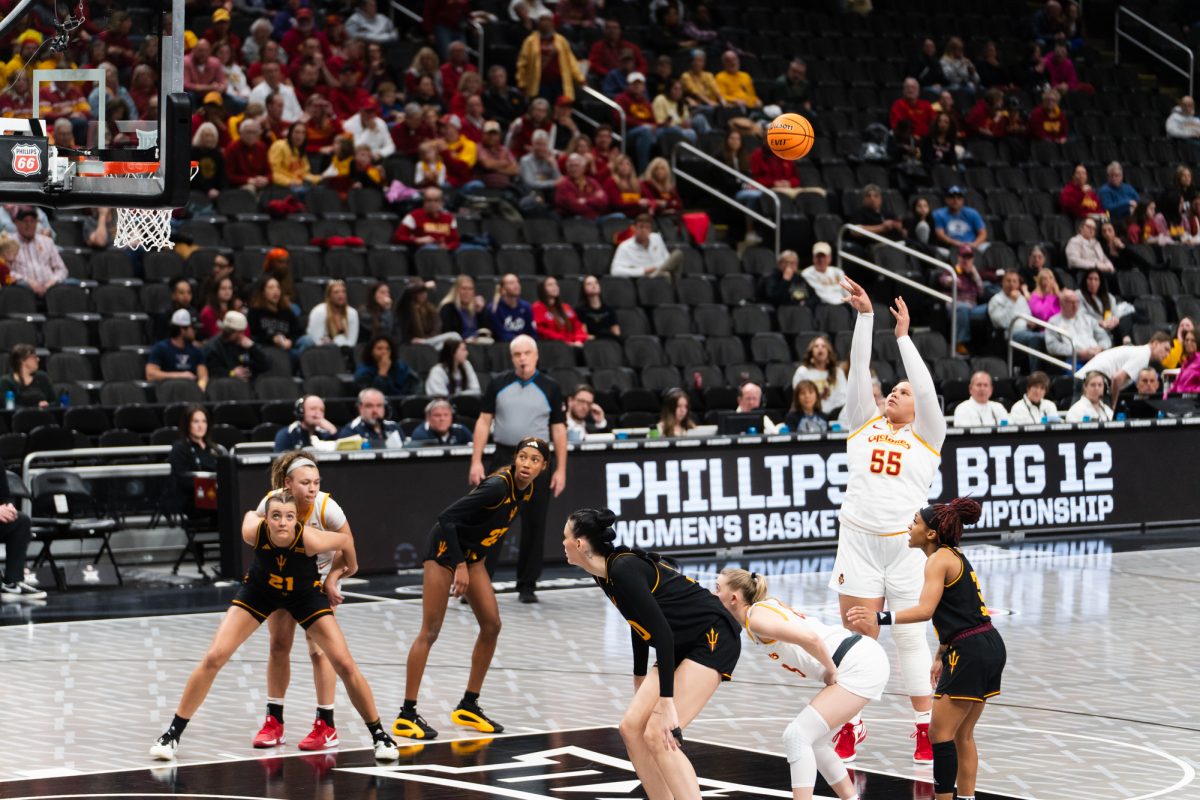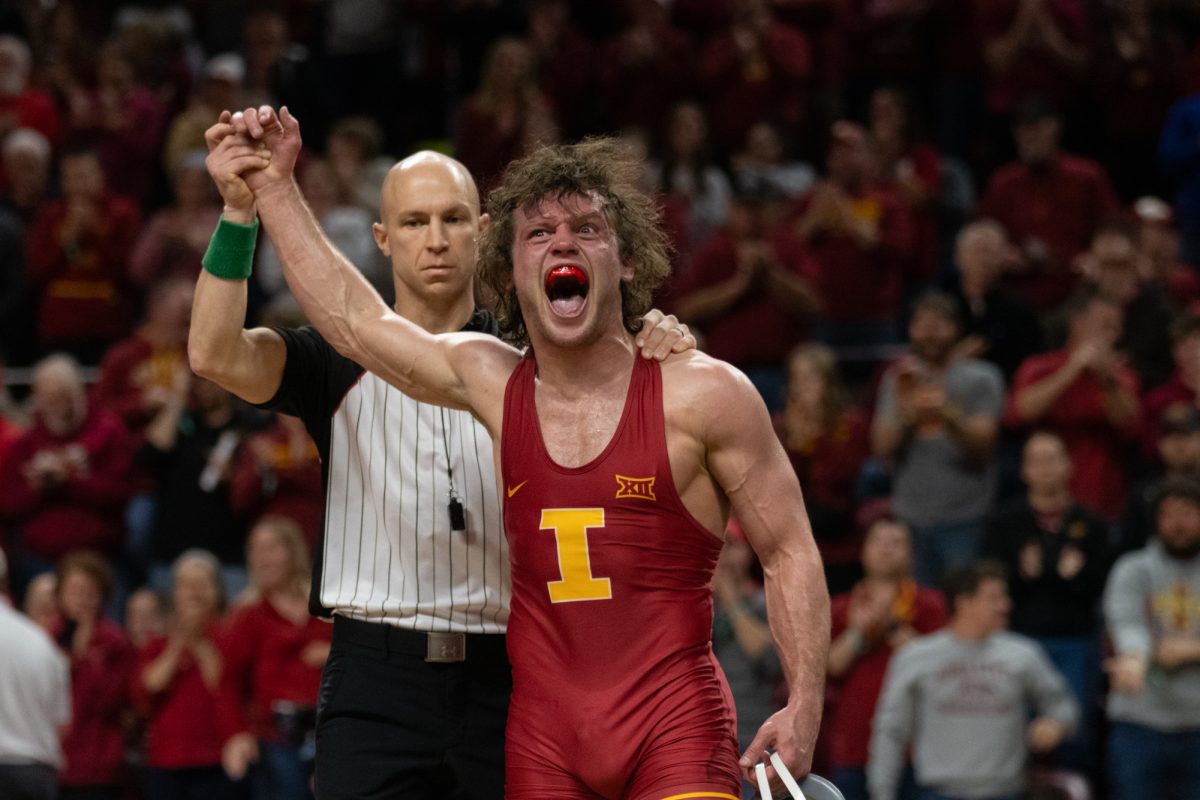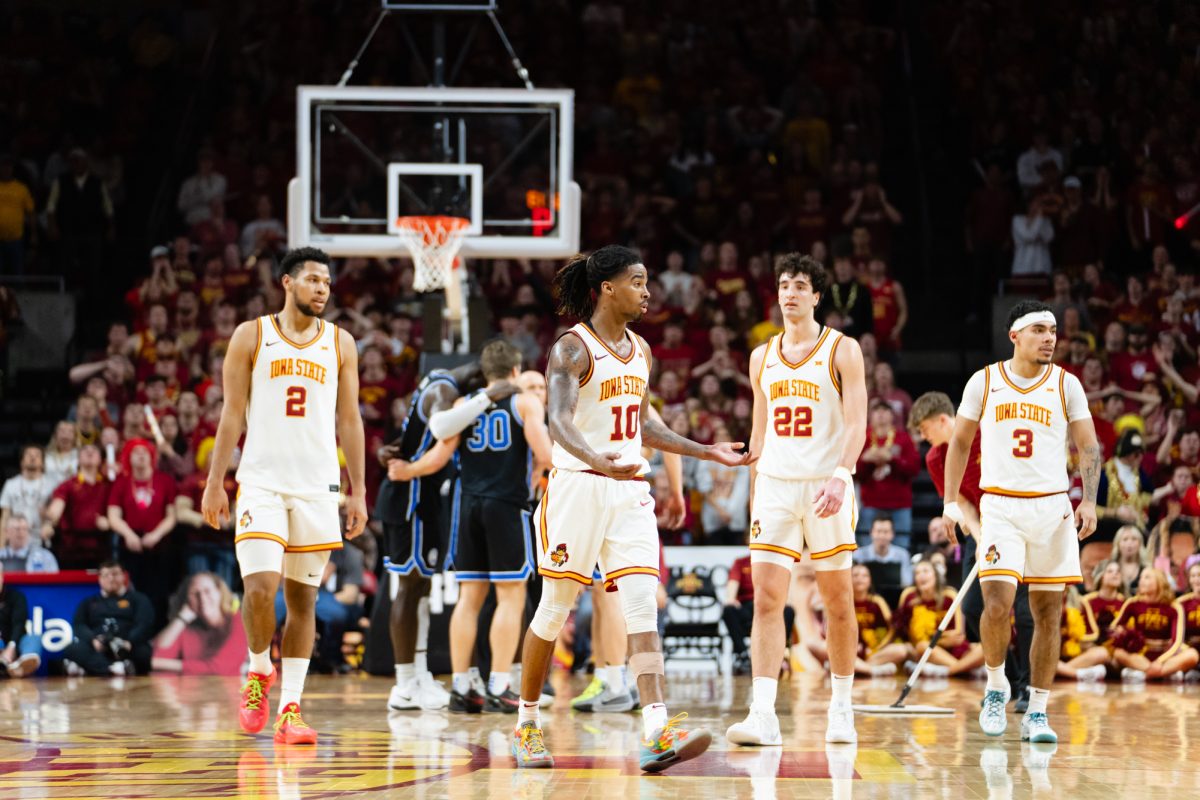Editorial: Make informed voting decisions based on merit
September 24, 2014
With the 2016 presidential elections coming closer, the top contenders have started to make their way into the public eye. Iowans are especially impacted by these early public relations meetings, and we are already beginning to see what the next two years hold for our state.
Hillary Clinton recently spoke at the final Harkin Steak Fry, an appearance that was quickly followed by a Clinton campaign bus showing up here in Ames. Not to be outdone, Chris Christie has been announced as a guest at Iowa Gov. Terry Branstad’s birthday party, which is Oct. 25.
There are obvious political motivations for the visit, evidenced by the fact that the party is being held nearly a month before Branstad’s actual birthday and just over a week before the Nov. 4 elections for Governor.
There is nothing surprising about the increased attention Iowa gets and will continue to get up until November 2016 because the most significant portion of a politician’s job, arguably, is getting elected. Iowans need to take advantage of the heightened attention we will be receiving from these presidential hopefuls and use their visits to form solid opinions about each candidate.
There are certainly people who have already made their voting decision for the 2016 elections before the candidates have even made formal announcements, but for citizens who do not hold strong partisan convictions, it is important to do research regarding the candidates so that no one simply ends up voting for a candidate simply because they are a republican or because they are a democrat.
A good way to form opinions on the character of each candidate is to go and listen to them speak while seeing how they interact with voters. However, that is not the only step in the equation. Remember that these politicians are working to be elected to the highest office in the nation, so they may not be perfectly forthright with some types of information.
Therefore, it is important to separate your opinion from the grandeur of political rallies and find the facts. Don’t allow a candidate to tell you about where they stand on social, economic, defense or any other national issues.
Go back and look for yourself. Research their voting records on controversial issues. If they serve their state directly, like Christie does, find out what the public opinion of the candidate is in their home states. If they serve on the national level as Clinton does, review how she handled significant issues and see if they line up with your beliefs on how to make our nation stronger.
The odds would say that if a candidate can’t keep their in-state constituents happy — Christie’s approval ratings are at their lowest since 2011 according to a Quinnipiac University poll — then the opinion will not greatly shift at the national level. Likewise, if you don’t agree with how the State Department handled any of the large scale international issues, then perhaps you wouldn’t care to have Clinton as the face of our nation.
On the other hand, Christie’s 49 percent approval rating is still higher than that of President Obama’s — 35 percent according to a recent Reuters poll. So if Christie’s numbers are maintained nationally, which is easier said than done with enhanced scrutiny, then he would be a somewhat popular president.
Similarly, upon further research you may form the opinion that Clinton did admirable work during her time as a member of the presidential cabinet and strengthened her bid for office.
Whatever your opinion may be, just make sure it is an informed opinion, not just one based on red versus blue or donkey versus elephant.






